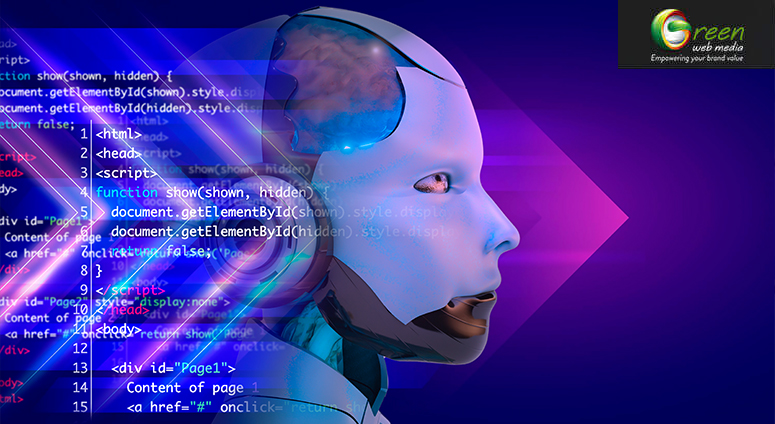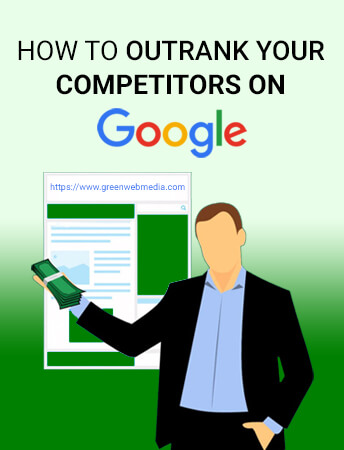ChatGPT – Is It Worth the Hype? Can You Use It for Content And SEO?

Unless you are Patrick – The Starfish from SpongeBob SquarePants, we don’t think you live under the rocks. And hence, we assume that you are aware of the new AI chatbot launched by OpenAI – ChatGPT, in November of 2022.
Even though OpenAI has been praised by the connoisseurs of the tech industry for its other revolutionary AI products like GPT-3 and DALL-E (Chat Generative Pre-trained Transformer) or ChapGPT is deemed the most impactful venture.
From assisting you in writing an email to summarize texts, interpreting difficult concepts, recommending ideas and so on, ChatGPT can do it all. Just type your query, and wait for the chatbot to display information that it “thinks,” is relevant. Besides, the quality of content ChatGPT is capable of producing is astounding. Hence, people are leaning towards using it for content production and search engine optimization (SEO).
Now the question arises, “is it worth it?” “Is ChatGPT capable of handling your content and SEO needs?”
Let’s dive into this blog to find out.
How ChatGPT works? How is it capable of doing what it does?
ChatGPT is a large learning model AI that is trained with huge amounts of data accumulated from the internet over the years. It uses the fed data to predict what the next word in a sentence might be.
The more data ChatGPT get trained on, the more types of tasks it will be able to accomplish. And since the trained datasets come from various platforms, including social media, the chatbot can comprehend the tone, biases, languages and whatnot.
The data ChatGPT features now are until 2021. It is not yet trained with any current data. This means whatever information you might receive from it may be a little older than you expect it to be.
Large learning models are trained with a wide range of knowledge and not just for a specific task. This means they can use their general knowledge to successfully complete multiple tasks.
Since ChatGPT features another large language model, aka, the InstructGPT, it is capable of taking directions in the form of long-form suggestions and intricate questions. And this is what makes this chatbot capable of taking instructions and producing essays on almost any topic and in any way specified.
You can expect ChatGPT to produce essays under various limitations, including specific topics, word count, etc.,
Top things to know about ChatGPT
Although ChatGPT can write essays on anything, thanks to its training in a wide range of texts, there are certain limitations. And knowing those limitations is crucial before you proceed to use ChatGPT for your SEO projects.
1- Programmed to avoid certain text generation
ChatGPT was designed to make things easier for written content producers. However, it is programmed to avoid the generation of certain texts.
For instance, ChatGPT refrains from producing essays or news information on topics that are explicit in nature, including violence, sex, harmful content, etc.
2- May not be aware of recent events
As mentioned earlier, the latest data ChatGPT comprises is until 2021. This means it isn’t aware of new trends, topics and information that happened after 2021.
So, if you aim to produce content that is filled with trendy and fresh information, then ChatGPT may not prove useful to you.
3- Features built-in biases
Yet another limitation of ChatGPT is that it is designed and trained to be harmless, truthful and honest while producing the content.
These are intentional biases built within the machine to avoid any harm or negativity.
But when it comes to article writing, such biases may subtly impact your need to be neutral.
You might require taking the wheel and telling ChatGPT what direction you wish your article to go in. To avoid any upbeat endings, be as precise with detailing the direction as possible.
Being aware of how you can influence the biases can result in successful and expected outcomes.
4- Requires detailed instructions from the user
If you think that typing brief information in the query box will result in the chatbot producing compelling copies, then you are mistaken.
If you want higher-quality content from ChatGPT, you will require offering detailed instructions. The chances of you producing highly original and topic-specific content will become higher.
The more instructions you provide, the more sophisticated the outcome will be.
And no matter how many different variations of instructions you provide, the chatbot will be able to generate different articles on the same topic, using similar subtopics but with completely different words.
ChatGPT is trained to use random words while forecasting what the next word in a sentence will be. Hence, it makes sense why it doesn’t plagiarize the content it creates on its own.
5- Google can detect AI-generated content
Researchers of different search engines have worked for decades to produce algorithms that are capable of detecting content produced by AI.
A research paper posted by Cornell University reports that researchers were testing to identify what kind of analysis is capable of detecting AI-generated content. The strategies they tested included –
- Using BERTH algorithm
- Word replacement with synonyms
- Adding misspellings, etc.
This study found that the computer-generated text can be distinguished easily using statistical features like Flesch Index Scores and Gunning-Fog Index, even if the text featured algorithms crafted for dodging the detection.
6- It may contain invisible watermarking
Cryptographic watermarks developed by OpenAI researchers can be used in detecting whether or not content is generated by AI or not.
With a key, anyone can assess a document to identify if it has a digital watermark, thereby confirming it was generated by an AI.
Watermarking can easily defeat the algorithmic efforts of dodging detection.
ChatGPT for SEO purposes – should you proceed?
1- AI content may get detected
Many people believe that it is impossible for search engines like Google to detect whether or not content was produced by AI.
Well, we don’t understand why anyone would have that opinion at all, given researchers have already solved the problem of AI detection (mentioned in points 5 and 6 above).
Even with anti-detection algorithms, content can be easily detected using watermarking and statistical features.
In fact, the process of detecting machine generates content has been the talk of research for many years along with how to detect content translated from other languages.
2- Autogenerated content infringes search engine guidelines
It is also seen that autogenerated content violates the guidelines put forward by search engines.
It was only recently when Google updated its “auto-generated” content section on October 2022. Again in November 2022, it updated the information with some new inputs. The changes they made clearly suggest what makes autogenerated content spam.
The initial update said gave the idea that automatically-generated content is programmatically produced and has no sufficient value or originality to them. The next immediate update changed the “automatically generated” word to “spammy.”
What this update suggests is that just because the content was automatically generated, it doesn’t mean it is spammy. It is the lack of value, quality and originality that makes the auto-generated content problematic.
3- Chances of watermarks are high
Few weeks before the release of ChatGPT, the Open AI researchers mentioned that the watermarking might be available for the next version of GPT.
This only means that sooner or later, even ChatGPT will become updated with watermarking if it doesn’t have one.
Is it possible to use ChatGPT for SEO at all?
While, of course, there are various reasons why you might want to avoid using ChatGPT for SEO, that doesn’t mean it is completely useless.
Some best uses of chatbots include –
- You can use AI tools to scale your SEO efforts, thereby assisting the SEO experts at your firm in working more productively.
- AI can do tedious research and analysis work for your firm.
- You can also use AI for the production of meta descriptions to summarize web pages. And Google, in particular, mentions such practice isn’t against its guidelines.
- You can also use ChatGPT to produce an outline for your content, or briefs, for that matter.
- Use AI for the production of content with fewer words – one that doesn’t require added research, statistical information or insights that further educates the readers. Perhaps a blog that is around 250 words or so.
- The time saved on writing the content using chatGPT can be used to work on quality checks. Keep in mind chatbots, no matter how evolved they get, will have limitations (as listed above).
Final thoughts
Although ChatGPT has loads of potential to streamline content generation and save time and effort invested in producing content, it isn’t smart to publish AI-generated content as-is. This is because even OpenAI has mentioned in the ChatGPT’s limitations that it can produce plausible-sounding yet nonsensical or incorrect answers.
If you are considering using ChatGPT, ensure that you spend time reviewing and editing the draft produced by the bot. Check whether or not the content makes sense, is newsworthy, helpful and accurate.
We hope this post proved to be an informative read!





